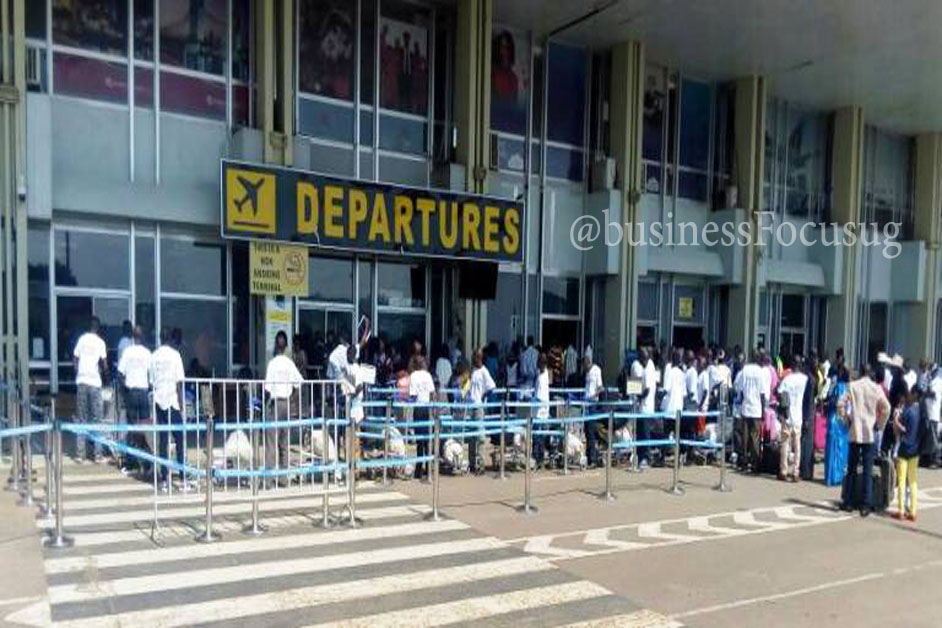Over 2400 Ugandans trafficked to Gulf countries last year are loitering the streets, Uganda’s Ambassador to the United Arabs Emirates (UAE), Zaake Kibedi has revealed. He explains that most of the affected are females who were trafficked to countries like UAE, Qatar, Omar, Saudi Arabia and Jordan with promises of domestic jobs.
He says that they compiled the statistics from the few human trafficking victims who were able to reach the embassy for help. Kibedi disclosed this while addressing journalists during his visit to Busia border on Saturday where he also went to attend the funeral of Hajji Musa Mukibi, the former Mayor of Busia Municipality.
According to Kibedi, only a few trafficked victims are able to reach the Ugandan embassy for assistance because many of them entered the countries illegally.
“When a few of these girls come into our office we ask them to tell us the total number of their group, and my office takes the initiative to accommodate them. Most of the victims come with forged or without passports because the traffickers confiscate them. As the Uganda embassy we take the initiative to process for some of them passports to enable them to return home,” said Kibedi.
Kibedi appealed to the government to strengthen the enforcement of the laws against human trafficking.
He also called upon Ugandans to embrace cash crop farming as opposed to sending their children for domestic jobs to gulf countries to suffer, saying there is a ready market for the crops in Arab countries.
Agnes Igoye, the deputy National Coordinator Prevention of Trafficking Persons from the Ministry of Internal Affairs, says that they have a task force comprising officers from 13 ministries, departments, local government, internal and external security agencies, sports and non-governmental organizations among others to help implement the prevention of trafficking in person acts.
Igoye says that they are also negotiating with eight countries to create a common position and come up with a bilateral labour agreement to help fight against abuse of the rights of foreign labourers.
Robart Muwazi, the Immigration Officer in charge of Busia one-stop border post, says that they face a challenge of manning the more than 200 porous routes in Busia district, which are used for human trafficking. He appealed to local leaders around border areas to help in the fight against human trafficking.
Moses Barasa, Annet Makokha Hadudu and Thomas Wabwire are among the residents of Busia who want the government to first scrutinize and close all unlicensed companies involved in human trafficking. Thomas Wabwire says that there is a need to boost security at the porous border points to apprehend human traffickers.
-URN





